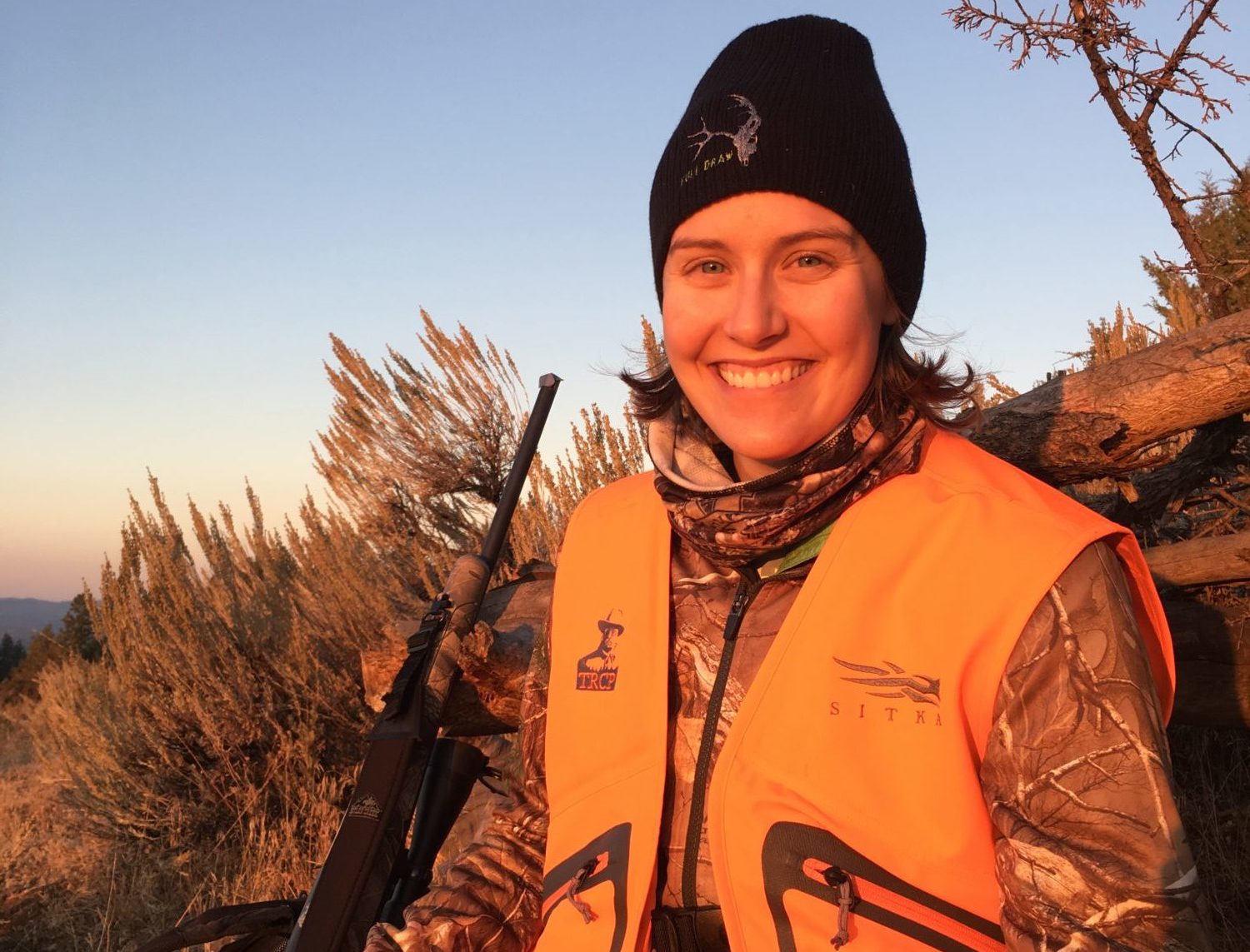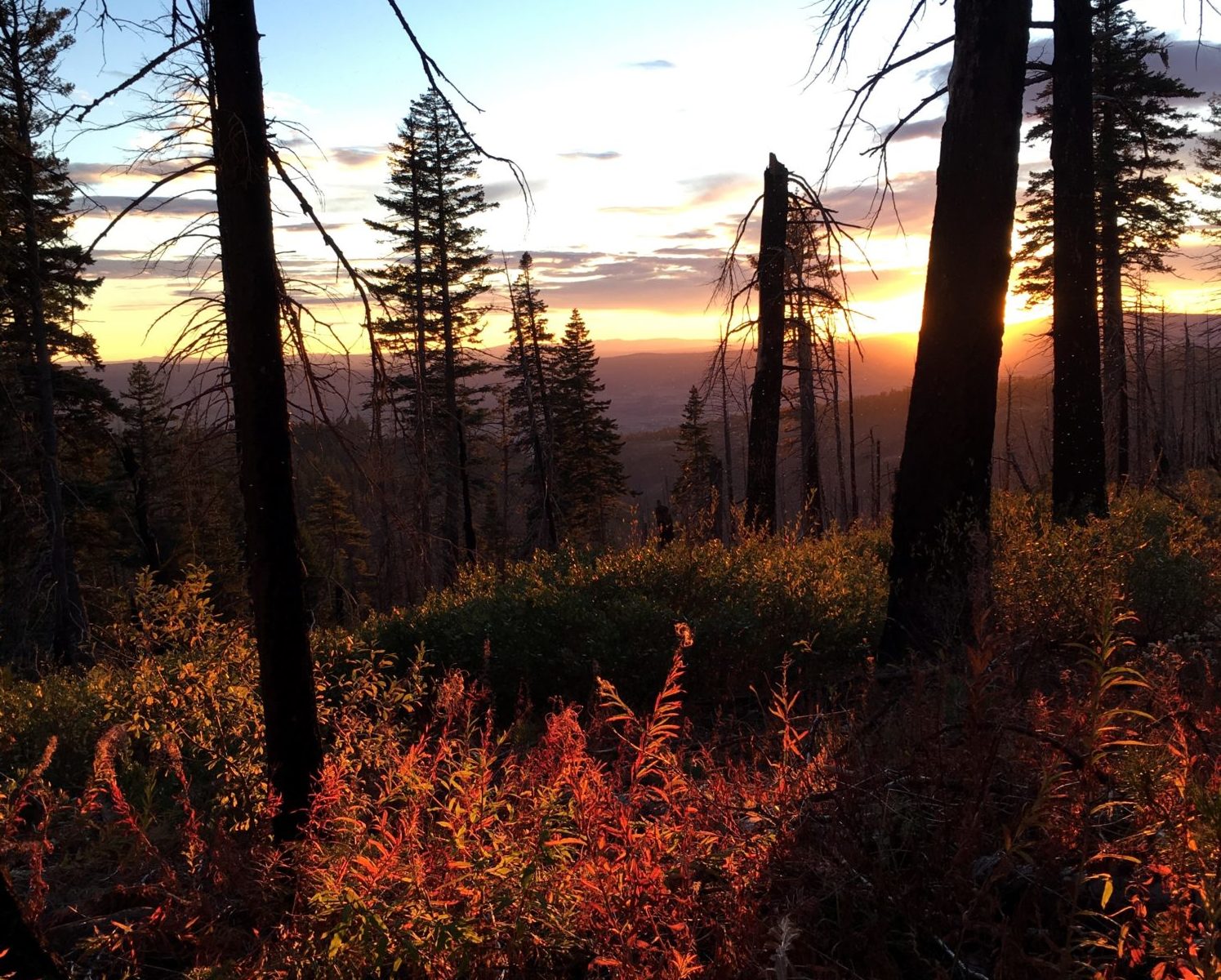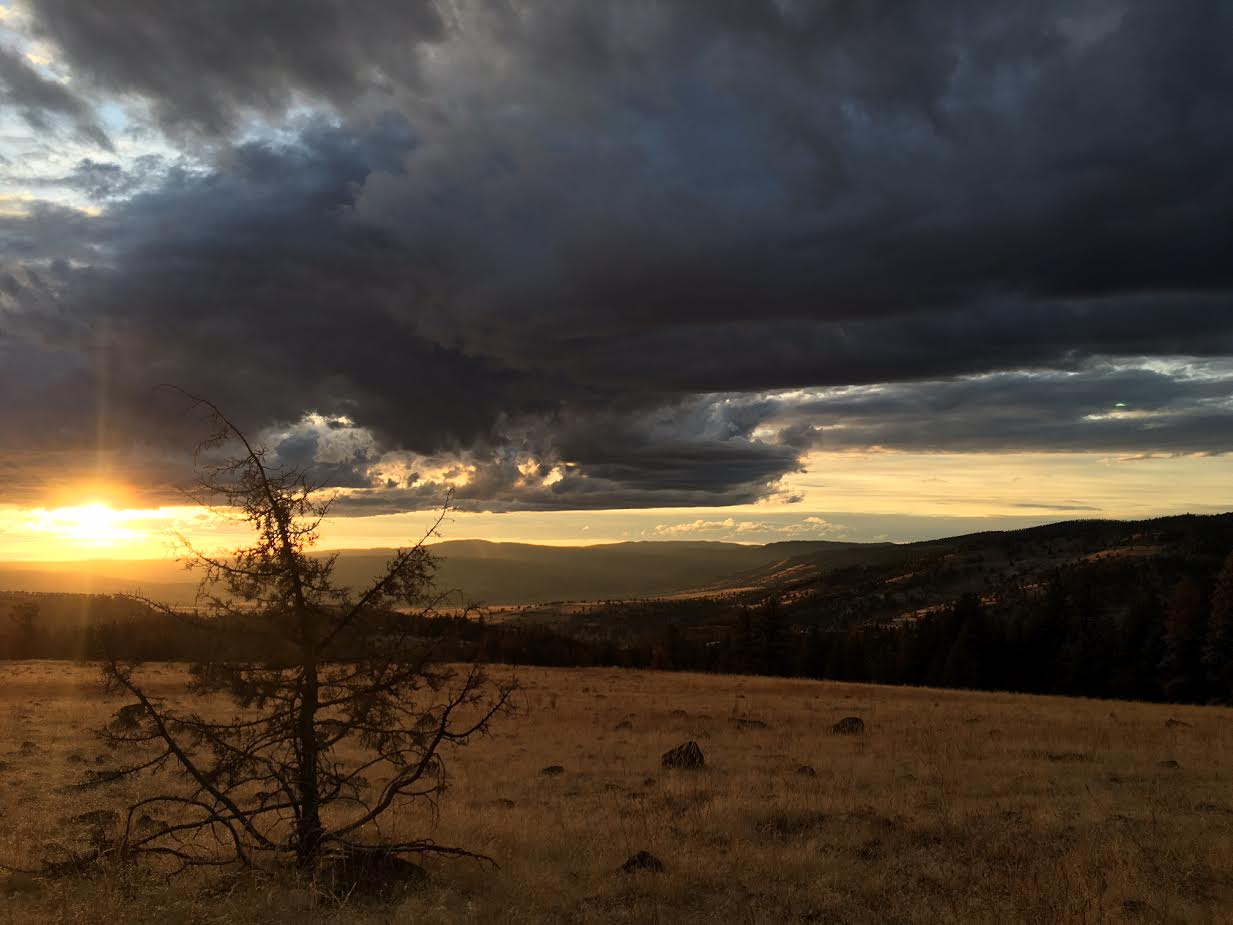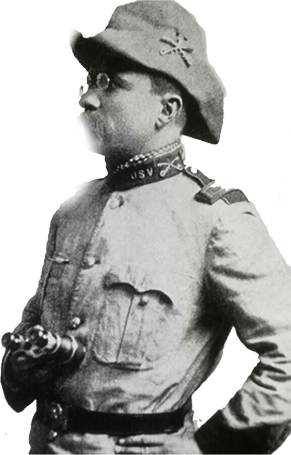IMG_4913-e1484236621353
Do you have any thoughts on this post?
A woman’s first mule deer hunt in Oregon takes her from hunting skeptic to #PublicLandsProud convert
This fall, I did something I never thought I would do—I went hunting.
I didn’t grow up with hunting traditions. In fact, five years ago, my opinion of hunting was probably more aligned with a stereotype than it was based on an actual person or group of people I knew who hunted.
Then I met Kevin, and suddenly found myself dating a hunter. You know him as TRCP’s Western field associate.
Through Kevin’s passion for hunting and the outdoors, I found myself immersed in a new world. We cooked wild game together, and I sat in on fascinating conversations among his friends regarding hunting ethics, outsider perceptions, and conservation.
I began to see hunting as a culture, and it changed my perspective enough that I thought about giving it a try myself.

A Humbling Hunt
This fall, against all odds, I drew tags for a mule deer buck and cow elk in Oregon—something that I hadn’t totally prepared for, especially since we wound up moving to Missoula, Mont., right before the season started. On the long drive back to the Beaver State, I studied YouTube videos on how to quarter a deer and pondered if there were any quick car exercises that could make up for my woeful lack of preparation in the physical fitness department.
We met up with Alex, a friend from Oregon, and made camp. This was Alex’s third year hunting mule deer, though he had yet to harvest one. Still, I remained confident—how hard could it be?
Sitting against a tree on opening morning, I listened to the forest waking up all around us as the sun rose over the mountains, and I felt a sense of awe. The landscape was breathtaking. If it weren’t for the tag in my pocket, I wouldn’t have seen that sunrise or experienced any of the lessons I learned that day. I was starting to understand what Kevin and his friends had been going on about.

I had no luck on opening day, but each encounter with an animal renewed my sense of excitement. As we crept up over a hill in late morning, Kevin stopped abruptly and whispered, “I see one.” I craned my neck to spot the animal he was looking at, adrenaline pumping. The deer was resting under a tree, partially obscured, but when its head turned, we both saw that it was a doe. That night, I remember having vivid dreams of seeing a buck instead and pulling off the perfect shot. When I woke up the next morning, I was giddy, ready to try again.
The next weekend, as Kevin and I were trudging up yet another steep hill while glassing the opposite hill for movement, our radio went off—Alex had shot a forked horn mule deer, his first! With no regard for any unseen animals that might be nearby, we whooped and hollered over the radio, sharing in his excitement. We got his coordinates and headed his way for the pack out.
I watched as Alex and Kevin field dressed the buck, seeing it transition from being an animal on the ground to different cuts of meat hanging from the trees. Alex kept the hide and cut out the ribs, wanting to savor each bit of his trophy and show full respect to the animal. By the time we loaded our packs and headed out with headlamps aglow, only a pile of guts and a few bones were left behind. For me, a big part of why I wanted to hunt was being able to provide my own meat and know where it came from. In today’s world where so much of our food processing is out of sight, this experience was the circle of life made tangible—an eye-opening experience of hunting for food and wasting nothing.
Lessons Learned

Although I never did pull the trigger, being a witness to Alex’s achievement was enough to get me hooked, though I don’t know if I’ll ever be obsessed with it the way Kevin is. Hunting is humbling in a way that I hadn’t expected. I went into it with starry eyes, thinking I would punch my tag on opening morning, but it wasn’t easy. I came back to camp at night tired, hungry, and cold. I can only imagine how difficult conditions would be without healthy habitat, plentiful big game, and access to public lands. So, you could say I learned the value of conservation at the same time that I was paying my dues in the field.
All in all, I was refreshed by the beauty and adventure of public lands, no matter the outcome. I’m aware now more than ever of the incredible bounty that public lands can provide, but I’ve also witnessed their fragility. The adventures I had this fall would not have been possible without them. Public lands are ours to enjoy, but first and foremost, they are ours to defend. I now truly know what it means to be #publiclandsproud, and I can’t wait to try again next fall.
Laura Sligh grew up in the tiny town of Holland, Mich. and currently lives in Missoula, Mont. When she’s not adventuring on public lands with her boyfriend, TRCP’s Western field associate Kevin Farron, and black Lab Leo, she’s knitting baby hats with their cat on her lap, or trying to master a new wild-game recipe.
It’s a new year and a new chapter in Washington, and we’re geared up to tackle the future of conservation with a completely redesigned trcp.org.

With our new look, we’ll continue to bring you up to speed on the conservation issues that matter to you, but it’ll be a lot more fun. Here’s what to expect:
We hope our fresh design will make it easier for you stay in-the-know and engaged on the front lines of conservation. Let us know what you think of our makeover by emailing info@trcp.org. We’d love to hear from you.
News for Immediate Release
Jan. 10, 2017
Contact: Kristyn Brady, 617-501-6352, kbrady@trcp.org
Redesign highlights the organization’s core issues, superior content, and opportunities for advocates to take action
WASHINGTON, D.C. – The Theodore Roosevelt Conservation Partnership is proud to announce the official launch of its newly redesigned website at trcp.org. The site overhaul puts original content, educational resources, and opportunities for action front and center, so American sportsmen and women have the tools to advocate for conservation policy that benefits fish, wildlife, and habitat.
“Conservation is the bedrock of all our American traditions in the outdoors, but it is often forged online by the sportsmen and women willing to engage and speak out for better policies and funding,” says Whit Fosburgh, TRCP’s president and CEO. “We hope our new site will continue to serve as an invaluable resource, point of discovery, and outlet for action.”
TRCP worked with Sage Lion Media, a marketing agency out of Denver, Colo., to focus on ease of navigation with a new mobile-responsive design. The homepage showcases some of Theodore Roosevelt’s best quotes, as well as the core issues that the organization fights for: habitat and clean water, sportsmen’s access, and a robust outdoor recreation economy. The TRCP blog features a customized reading list to introduce users to other conservation topics of interest. And with all its content under one roof, nearly every page showcases beautiful photos and the engaging opinion-driven conservation stories that TRCP is known for.
The TRCP’s scouting report on sportsmen’s issues in Congress
Last week was the kick-off of the 115th Congress. Here’s what you may have missed:
Public lands were threatened on the first day. A provision was included in the House rules package that would allow the Congressional Budget Office to not consider the lost revenues from transferring public lands, potentially easing the path forward for transfer. The package passed the House on party lines.
 Efforts were made to eliminate recent regulations during the first week. The House quickly passed two bills which aim to facilitate the removal of rules that were made in the final days of the Obama administration. “The Midnight Rules Relief Act” would allow a single joint resolution by lawmakers to disapprove multiple rules finalized in the administration’s final days, and “The Regulations from Executive in Need of Scrutiny Act” (REINS Act) would require congressional approval for any federal rule that would impact the economy with costs that exceed $100 million. The Senate introduced their own versions of these bills as well: S. 34 and S. 21.
Efforts were made to eliminate recent regulations during the first week. The House quickly passed two bills which aim to facilitate the removal of rules that were made in the final days of the Obama administration. “The Midnight Rules Relief Act” would allow a single joint resolution by lawmakers to disapprove multiple rules finalized in the administration’s final days, and “The Regulations from Executive in Need of Scrutiny Act” (REINS Act) would require congressional approval for any federal rule that would impact the economy with costs that exceed $100 million. The Senate introduced their own versions of these bills as well: S. 34 and S. 21.
Another way to undo previous rules might be used to weaken water protections. As Obama-era regulations continue to be a major focus of the new Congress, it seems likely that the Congressional Review Act (CRA) may be utilized to stop the most highly controversial rules. The CRA would allow Congress to consider stopping rules that were introduced after May 16, 2016 with only a simple majority. One rule the Republican leadership would like to see blocked first is the Stream Protection Rule, which would limit regulations for coal mining near waterways. The House is expected to begin considering rules under the CRA as early as January 30.
The national monument designation process is also under scrutiny. Senator Lisa Murkowski (R-Alaska) and 25 Senate Republicans introduced “The Improved National Monument Designation Process Act,” which would require congressional approval, state legislature and local support, and a certification of compliance with the National Environmental Policy Act before national monuments and marine monuments can be declared by the president.
This is what we’re scoping this week:
We’ll be watching 2017 budget discussions for provisions that affect habitat and access. To this point, 21 amendments have been filed to the Senate Budget Resolution, with many more expected. The Senate is expected to be voting on budget-related amendments for the majority of this week, including a likely “vote-a-rama,” during which many votes will be stacked one after the other into a late-night voting session. Amendments must be written in a way that makes them germane to the budget, but can cover a wide range of policy issues.
The process of confirming Trump’s cabinet might begin this week with testimonies in nominees’ respective Senate committees. President-elect Donald Trump’s nominees for EPA Administrator Scott Pruitt and Energy Secretary Rick Perry, attended meetings with Republicans and Democrats last week in advance of confirmation hearings that will be announced soon. Congressman Ryan Zinke (R-Mont.), Trump’s Interior Secretary nominee, will be meeting with Senate Energy and Natural Resources Committee members this week in advance of a confirmation hearing that Chairwoman Murkowski pledged will happen before the inaugural ceremonies on Jan 20.
From now until January 1, 2025, every donation you make will be matched by a TRCP Board member up to $500,000 to sustain TRCP’s work that promotes wildlife habitat, our sporting traditions, and hunter & angler access. Together, dollar for dollar, stride for stride, we can all step into the arena of conservation.
Learn More
